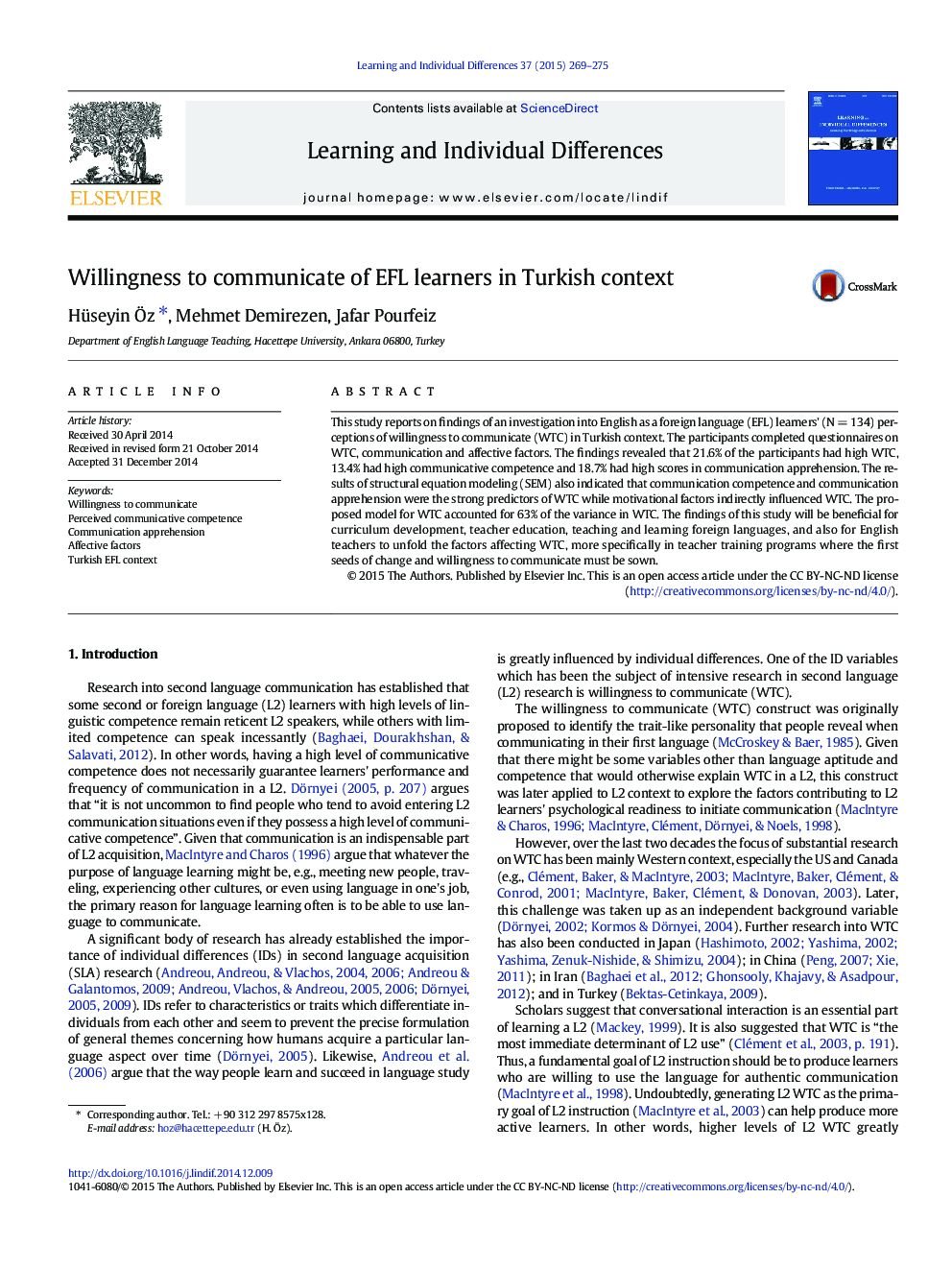| Article ID | Journal | Published Year | Pages | File Type |
|---|---|---|---|---|
| 6844994 | Learning and Individual Differences | 2015 | 7 Pages |
Abstract
This study reports on findings of an investigation into English as a foreign language (EFL) learners' (NÂ =Â 134) perceptions of willingness to communicate (WTC) in Turkish context. The participants completed questionnaires on WTC, communication and affective factors. The findings revealed that 21.6% of the participants had high WTC, 13.4% had high communicative competence and 18.7% had high scores in communication apprehension. The results of structural equation modeling (SEM) also indicated that communication competence and communication apprehension were the strong predictors of WTC while motivational factors indirectly influenced WTC. The proposed model for WTC accounted for 63% of the variance in WTC. The findings of this study will be beneficial for curriculum development, teacher education, teaching and learning foreign languages, and also for English teachers to unfold the factors affecting WTC, more specifically in teacher training programs where the first seeds of change and willingness to communicate must be sown.
Related Topics
Social Sciences and Humanities
Psychology
Developmental and Educational Psychology
Authors
Hüseyin Ãz, Mehmet Demirezen, Jafar Pourfeiz,
